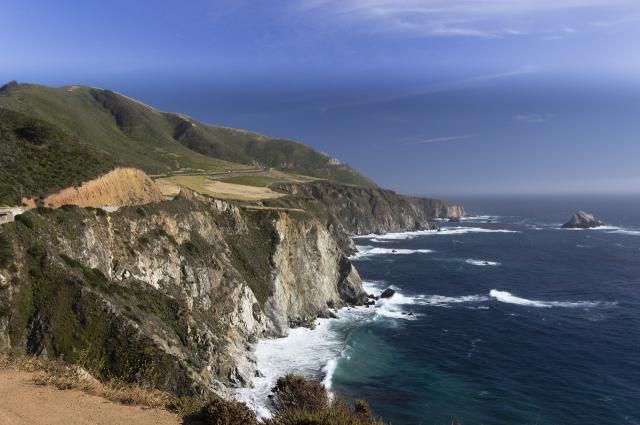Scientists Recommend Immediate Plan to Battle West Coast Ocean Acidification
Published on by Naizam (Nai) Jaffer, Municipal Operations Manager (Water, Wastewater, Stormwater, Roads, & Parks) in Academic
A new report published revealed that global carbon (CO2) emissions are triggering permanent and alarming changes to ocean chemistry along the North American West Coast.
According to a unanimous conclusion from the 20-member West Coast Ocean Acidification and Hypoxia Science Panel, action is needed to combat this problem, and a failure to respond to this fundamental change in seawater chemistry, known as ocean acidification, will have devastating consequences for the West Coast in the decades to come.
“Increases in atmospheric carbon dioxide emissions from human activities are not just responsible for global climate change; these emissions also are being absorbed by the world's oceans,” Dr. Alexandria Boehm, co-chair of the Panel and a Professor of Civil and Environmental Engineering at Stanford University, said in a media release. In fact, about 50 percent of all human CO2 emissions have been absorbed by the oceans since the industrial revolution.
“Our work is a catalyst for management actions that can address the impacts of ocean acidification we're seeing today and to get ahead of what's predicted as ocean chemistry continues to change,” Boehm continued.
Due to the way the Pacific Ocean circulates, the North American West Coast is exposed to excessive volumes of seawater with elevated acidity levels. Already, West Coast marine shelled organisms are having trouble forming their protective outer shells, and the West Coast shellfish industry is seeing high mortality rates during the early life stages when shell formation is vital.
Unfortunately, the acidity of the world’s oceans is expected to continue to accelerate with rising atmospheric CO2 emissions.
However, it is not all doom and gloom. The Panel has summarized a series of potential management actions that governments of the states of California, Oregon, and Washington, and the Canadian province of British Columbia can begin implementing to offset and mitigate the economic and ecological impacts of ocean acidification.
The Panel’s solutions include:
Exploring the use of seagrass to remove carbon dioxide from seawater.
Supporting revisions to water-quality criteria that are used as benchmarks for improving water quality, since existing criteria were not written to protect marine organisms against the effects of ocean acidification.
Identifying strategies for reducing the amounts of land-based pollution entering coastal waters, since this pollution can intensify acidification in some locations.
Improving the West Coast-wide monitoring network that provides information toward the development of coastal ecosystem management plans.
Supporting approaches that enhance the adaptive capacity of marine organisms to cope with ocean acidification.
Even though ocean acidification is a global problem that will require global solutions, the Panel deliberately focused its recommendations around what West Coast agencies can do at the regional level.
“One of the most exciting aspects of the Panel's work is that it scales a challenging, global problem down to a local and regional level, providing a roadmap to guide measurable and meaningful progress immediately,” Deborah Halberstadt, Executive Director of the California Ocean Protection Council, a government agency that served as the impetus for the Panel's formation, said in the release.
West Coast policymakers will use the Panel’s recommendations to further advance management actions — which the governors of California, Oregon, Washington, and the premier of British Columbia have been working on together since 2013 — aimed at battling ocean acidification and hypoxia (low-oxygen conditions).
“Communities around the country are increasingly vulnerable to ocean acidification and long-term environmental changes,” said Dr. Richard Spinrad, Chief Scientist for the National Oceanic and Atmospheric Administration, in the release.
“It is crucial that we comprehend how ocean chemistry is changing in different places, so we applaud the steps the West Coast Ocean Acidification and Hypoxia Science Panel has put forward in understanding and addressing this issue. We continue to look to the West Coast as a leader on understanding ocean acidification.”
Download the Executive Summary or Full Report: West Coast Ocean Acidification and Hypoxia Science Panel
Source: The Science Explorer
Media
Taxonomy
- Research
- Environment